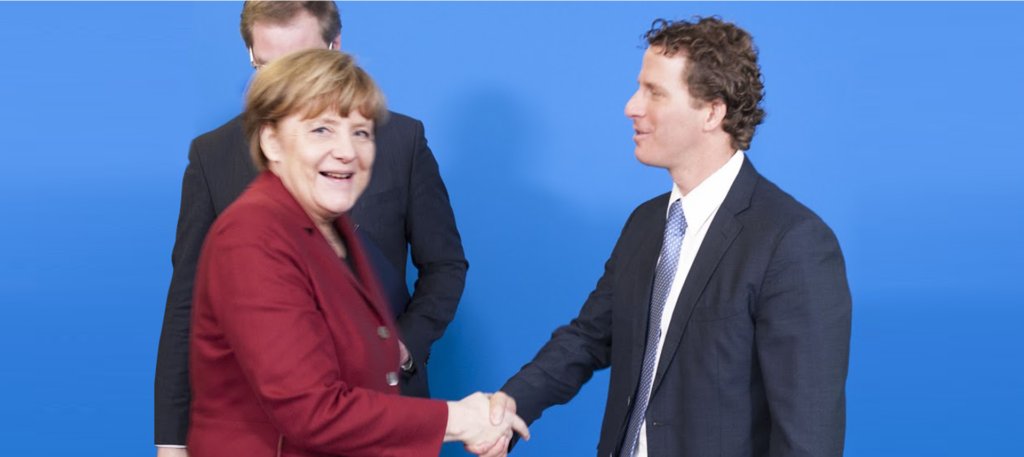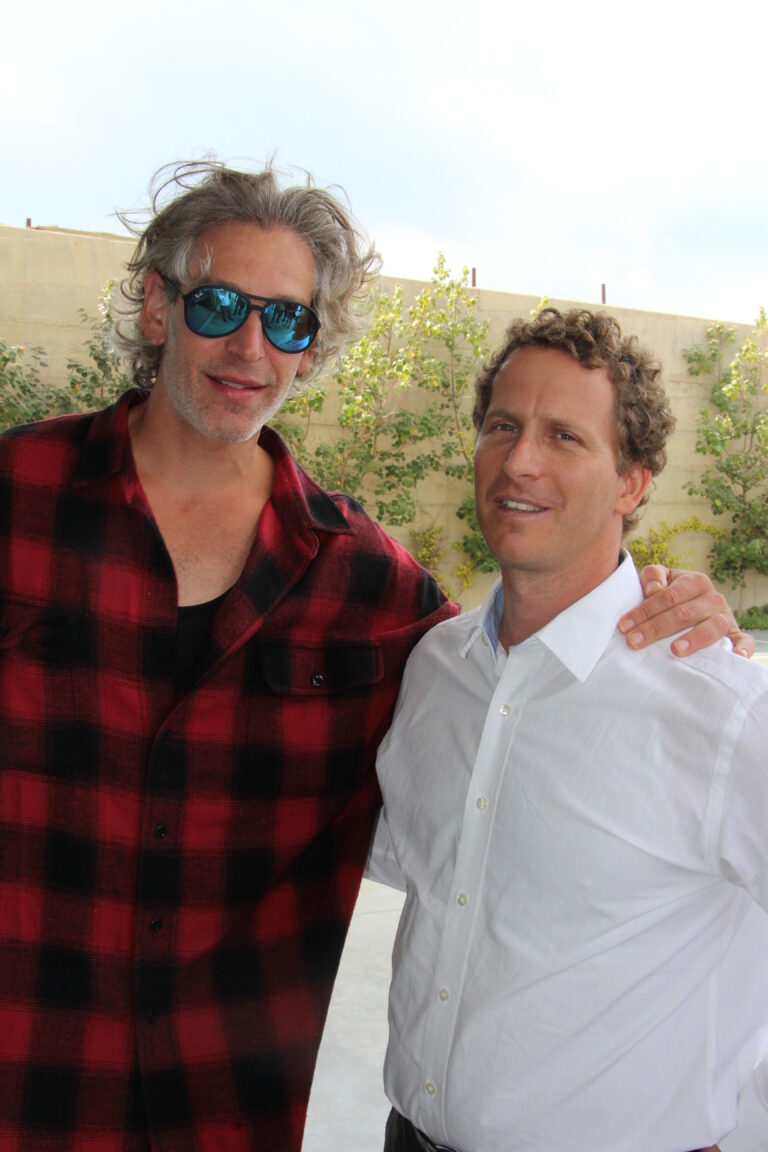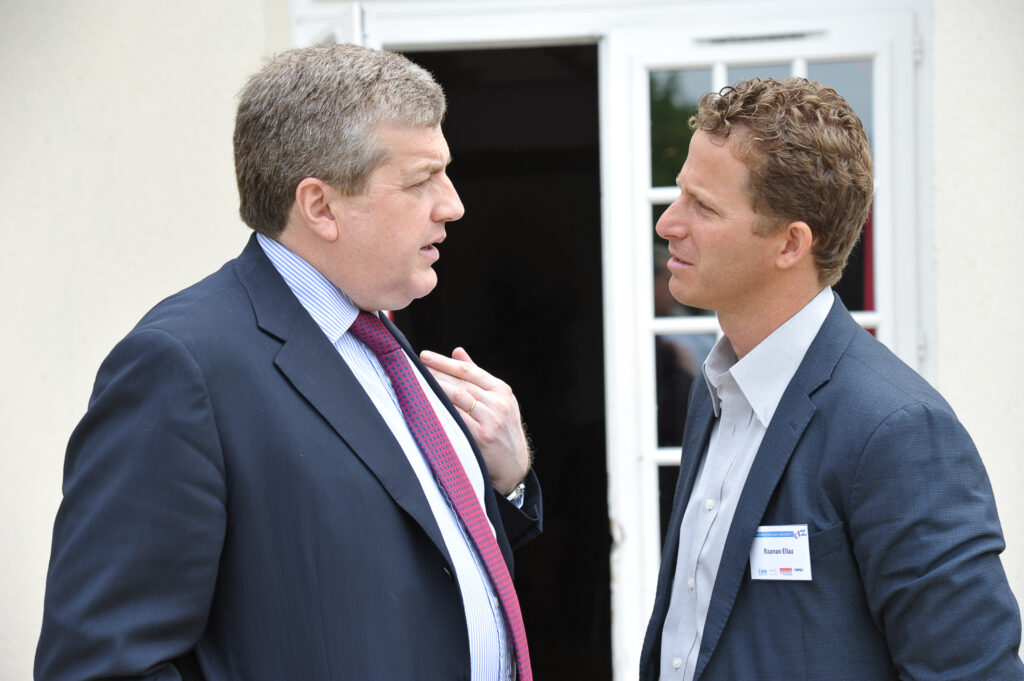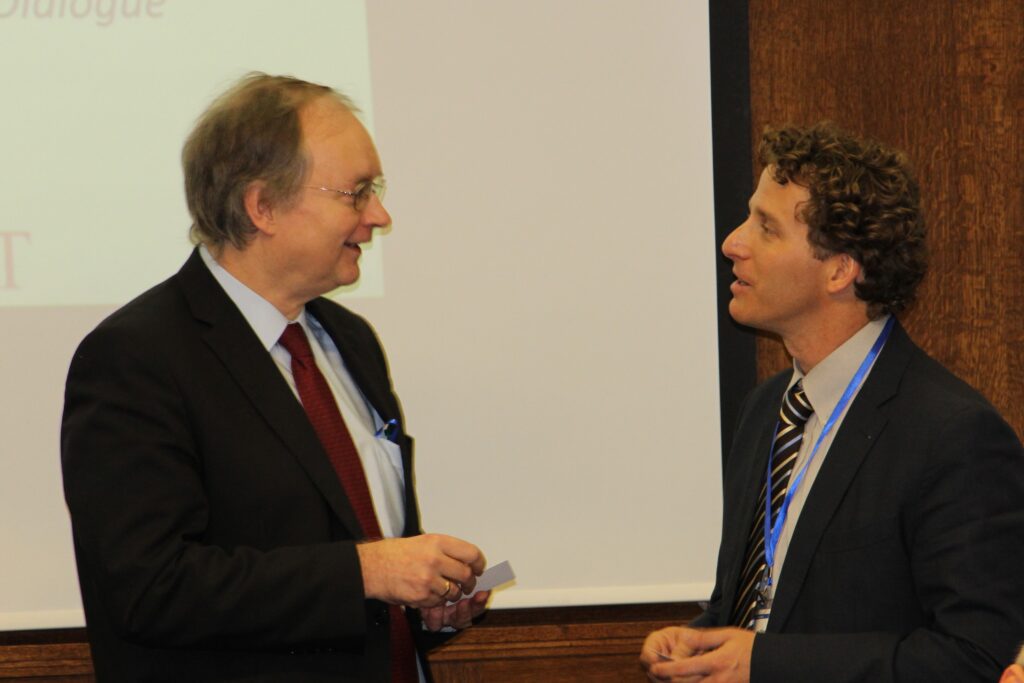Raanan Eliaz
Raanan Eliaz is Founding Director of the Europe-Israel Network and a leading partner in the creation of a movement to strengthen Europe-Israel relations. From its inception and until 2017, Eliaz led ELNET and the Forum of Strategic Dialogue, dedicated to political empowerment of European friends of Israel. Previously, he served on the National Security Council of Israel, AIPAC in Washington, D.C., and the European Friends of Israel in Brussels.
Biography
Born to a Zionist family, Eliaz’s parents were educated in the Kibbutz movement and volunteered as youth to establish the Hashomer Hatzair kibbutzim: Sha’ar Ha-Golan, Gesher Haziv, and Alumot. As adults, they belonged to the founding nucleus of the Beit Horon settlement.
After completing his military service as a combat medic in the Air Force Rescue Unit 699 and the Nahal Reconnaissance Squadron, Eliaz completed a bachelor’s degree in political science from The Hebrew University of Jerusalem and a master’s degree in EU Governance and International Policy from the Catholic University of Leuven, Belgium. Eliaz specializes in Europe-Israel relations, and in 2002 published a thesis on The Role of the European Union in the Resolution of the Israeli-Palestinian Conflict.
Political action on behalf of Israel in Brussels and Washington
Eliaz embarked on his mission to rekindle ties between Israel and Europe and empower Israel’s friends in Europe as soon as he completed his master’s degree. He was a founding member of the Europe Near-East Forum and European Friends of Israel. In 2003, he began working at AIPAC in Washington, DC. He also served as Research Fellow at the Washington Institute for Near Eastern Policy (WINEP). In addition, Eliaz served as Director of Research and Strategic Planning at the Hudson Institute.
During these formative years, 2002-2005, Eliaz shaped his outlook on the advantages of political action over advocacy campaigns, in order to effectively advance Israel’s ties with Europe.
Conceptualizing an action plan for promoting Europe-Israel relations
According to Eliaz, political action is the most effective way to advance Israel’s interests in Europe. Based on his professional experience in Washington and Brussels, while public advocacy is more easily accessible, it is inherently limited in its ability to influence the outcome policy. Political action, on the other hand, requires diligence and meticulous, strategic planning; it is usually less glamorous and involves taking more risks than public advocacy, while its purpose is to get one’s opponent to adopt a policy or take steps that will eventually serve Israeli interests.
Eliaz’s affinity for the contemporary, united Europe and the EU’s ability to have a favorable impact upon the Middle East, was shaped when he studied and worked in Belgium, in 2001-2003. There, he also experienced anti-Semitism firsthand during the Al-Aksa Intifada.
Service in the National Security Council
In 2005-2007, Eliaz served as Senior Coordinator for Foreign Policy under National Security Adviser at the time, Maj. Gen. Giora Eiland, reporting to the late Prime Minister Ariel Sharon, and later to Prime Minister Ehud Olmert. The intimate exposure to leadership agendas and patterns of thinking, honed Eliaz’s skill for discerning the strengths and limitations of the government, and identifying areas in which there is a gap between what exists and what is desirable.
Eliaz assisted in preparing the National Security Adviser for strategic dialogues with the United States, Russia, and China. To his surprise, Israel did not have routine dialogues with European countries or the European Union External Affairs Service, which he will later assist in instituting.
Establishment and management of the European Leadership Network (ELNET)
Eliaz founded ELNET in June 2007, first in Brussels, and later in other European capitals – Madrid, Spain (2008), Paris, France (2010), Berlin, Germany (2013), and Warsaw, Poland (2015). Eliaz also founded ELNET in Israel (2010) and the Forum for Strategic Dialogue (2013) as an offspring of ELNET.
In the years 2007-2017, Eliaz served as the CEO of ELNET, led the strategic planning and execution of its activities, recruited and directed its staff, volunteers and donors. Mr. Ofer Bozo, a strategic consultant, accompanied the establishment and development of the network. ELNET’s central role was to encourage civilian political activism, to strengthen Europe’s ties with Israel.
Eliaz was instrumental in developing the operational structure of the organization from its inception. Ha also created unique partnerships with the foreign offices and ministries of defense of France, Germany, Spain and Poland. He successfully initiated ELNET’s Brussels office in order to enhance and cultivate relations with NATO and the European Parliament; increased the number of delegation visits; and developed a more visible role at the Munich Security Conference, Herzliya Conference and The Brussels Forum of the German Marshall Fund.
Mobilizing political activists
In the years 2008-2012, Eliaz mobilized French citizens to participate in the political process in favor of then President of France, Nicholas Sarkozy, and later to strengthen the position of François Hollande in the race for the leadership of the Socialist Party and subsequently to become the president of France. When Dominique Strauss-Kahn’s chances to lead the Socialist Party were severely undermined, it became clear to Eliaz that the Socialist Party could fall into the hands of Martine Aubry. In an unprecedented campaign, French citizens rallied to help Hollande win the party’s leadership and later become the President of France.

Struggle against the BDS Movement in Europe
Germany:
Consistent activity by Eliaz with the senior political echelon in Germany has contributed to Germany’s adoption of an aggressive policy against the Boycott, Divestment and Sanctions movement against Israel (BDS). Eventually, legislation stipulated the outlawing of boycott activity against Israel, marking it antisemitic. Even the far left of Germany’s political spectrum, Die Linke Party, which agreed to visit Israel in two delegations in 2011 and 2015, later opposed BDS, in an unprecedented public move.
Spain:
Various initiatives to mobilize Spain in favor of the boycott movement against Israel have been defeated in activities led by Eliaz and Spanish affiliates at the municipal and national level. For example, in April 2011 in the Spanish city of Getafe, the ruling party and opposition party, PP (Partido Popular) joined hands with the opposition socialist party PSOE (Partido Socialista) in order to eliminate an official campaign in support of the flotilla sent to the shores of Gaza.
In August 2015, an attempt to dissuade the Jewish American singer Matisyahu from performing at a festival held in Valencia, Spain was repealed.

Impacting policies in Europe
France:
In 2010-2014, consistent and persistent communication by Eliaz’s French affiliate with working levels of the Ministry of Defense and the French Atomic Energy Commission helped to reinforce France’s support for an aggressive sanction policy against Iran and the threat of weapons of mass destruction. According to experts, France’s position at the time was even more forceful than the American policy under then U.S. President Obama.
In 2014-2015, during the Syrian Civil War, an Israeli-French partnership Eliaz created enabled a coordinated policy toward the rebel factions against Syrian President Assad.
Germany
Eliaz recruited many leaders from across the German central political spectrum, including Gert Weiskirchen, Sylke Temple, Christian Schmidt and Philipp Missfelder, to promote coordinated policies for Germany and Israel. The emphasis was on creating stable relationships based on concrete, present-day interests, beyond the traditional narrow vision that characterizes Israel’s relations with Germany and focuses mainly on the context of the Holocaust.
Brussels / EU
A series of activities Eliaz led in Brussels supported the EU, for the first time, in differentiating between promoting bilateral relations with Israel and progress in negotiations between Israel and the Palestinians, a policy which characterized the EU for decades. Mr. Chrisitan Berger, then Director for North Africa, Middle East, Arabian Peninsula, Iran and Iraq at the EEAS, admitted in a Strategic Dialogue conducted in Brussels on February 5, 2015, that the automatic linkage the EU has made throughout decades, played against its own interests in the region.
The Forum of Strategic Dialogue
Eliaz established the Forum of Strategic Dialogue in 2013 with the aim of promoting research, and exchange of ideas, as well as “soft advocacy” on behalf of Israel. The model applied was based on the AIPAC and WINEP models.
Drawing on his experience at the Israeli National Security Council preparing official strategic dialogues, and observing the absence of such a framework between Israel and Europe, Eliaz devised the strategic dialogue model as a “track one-and-a-half diplomacy.” The first annual Strategic Dialogue was held between France and Israel in 2010, with Ms. Thérèse Delpech and Amb. Michel Miraillet as the main partners on the French side. Additional Strategic Dialogues were later conducted annually between Israel and Germany, the United Kingdom, Poland, the European Union (EEAS) and the NATO Alliance.
Eliaz created avenues for engagement with prestigious research institutes, including the British Chatham House, German Federal Academy for Security Policy BAKS, France’s FRS, Spain’s Elcano Royal Institute and Brussels-based EPC and Egmont Institute.


Groundbreaking Research
- A Special Study of European Political Arena and Contributions Laws / FRANCE
- A Special Study of European Political Arena and Contributions Laws / GERMANY
Conducted privately and published in Washington DC in 2003-4, distributed to selected leaders in Europe and the US. Studies included unprecedented mapping by pro-Israel actors of the European political system, arena and actors at the time, including a special study on campaign/political contribution laws.
- The Jewish Origins of Candidate for Presidency of France, Nicolas Sarkozy. The study was conducted in a private capacity and was widely quoted at the time . It involved personal meetings between Eliaz and family members of Sarkozy in Europe, the US and Israel, and was eventually presented to Sarkozy, who, as President, visited Thessaloniki, the city of his family origins.
Public Roles
Eliaz volunteers in a number of public positions:
- Founding member, Europe-Israel Network
- Member of the Board of Trustees, Yezreel Valley Academic College
- Member, Israeli Association for the Study of European Integration (IASEI)
Books, interviews and publications
Interviews
- Nathan Guttman, New European Pro-Israel Group Aims for Low Profile, Forward, June 12, 2008
- Rob Eshman, Non-Partisan Network Works to Bolster Europe-Israel Bonds, Algemeiner, November 7, 2015
- Alina D. Sharon, With U.S.-Israel ties aplenty, ELNET works to bolster Europe-Israel bonds, JNS, November 12, 2015
- Nitzan Horowitz, Foreign Game, The Knesset Channel, July 8, 2019
- Online Event, Europe-Israel Relations: Tapping the Potential, Hanns Seidel Foundation Israel, 11 November, 2020
Articles
- Raanan Eliaz, Nicolas Sarkozy, new President of France: Past and Future, Tolerance.ca, June 20, 2007
- Raanan Eliaz, The European Union and the Israeli-Palestinian Conflict
- Raanan Eliaz, Will Sarkozy’s Jewish roots impact France’s policies?, Jewish Journal, 11 May, 2007
- Raanan Eliaz, 2014: A year of opportunity for Israel and Europe, The times Of Israel,13 January, 2014
- Raanan Eliaz, America, Europe and Israel: Sharing the burden, halving the load, The Times of Israel, 21 August, 2015
- Raanan Eliaz, Critical Choices Ahead for the EU-Israel Alliance, The Times of Israel, 25 February, 2015
- Raanan Eliaz, French Jewry’s fateful political challenge,The Times of Israel, 4 May 2017
- Raanan Eliaz, Something good is happening in Europe, and we better take note,The Times of Israel, 11 July 2017
- Raanan Eliaz, A momentous test for the Germany-Israel alliance, The Jerusalem Post, 10 September 2017
- Raanan Eliaz, EU-Israel ties in 2018 – managing expectations, The Jerusalem Post, 17 December, 2017
- Raanan Eliaz and Dimitri Dombret, Opportunities amidst Crisis in EU-Israel Ties, European Business Review, 2 March, 2018
- Raanan Eliaz, Orban in Jerusalem: Challenging days for Europe-Israel relations, Euractive, 16 July, 2018
- Raanan Eliaz, Israelis, vote! In the European elections, The Times of Israel, 14 February, 2019
- Raanan Eliaz, How Israel and Jews Can Help Europe Welcome a Peaceful Islam, Algemeiner, 23 July, 2019
- Raanan Eliaz, Concern for World Jewry should be Demanded from Top Candidates, The Times of Israel, 26 August, 2019
- Raanan Eliaz, Elections in Israel: Why Should Europe Care?, The Times of Israel, 13 February, 2020
- Raanan Eliaz, Why Europe and Israel Need Each Other, Algemeiner, 13 February, 2020
- Raanan Eliaz, From Mussels to Muscles, Brussels Times, 7 May, 2020
- Raanan Eliaz, Israel’s Chance to Improve Relations With Europe, Algemeiner, 8 December, 2020
Books
- “No Poem Is But A Love Poem”(2017) Poetry book
